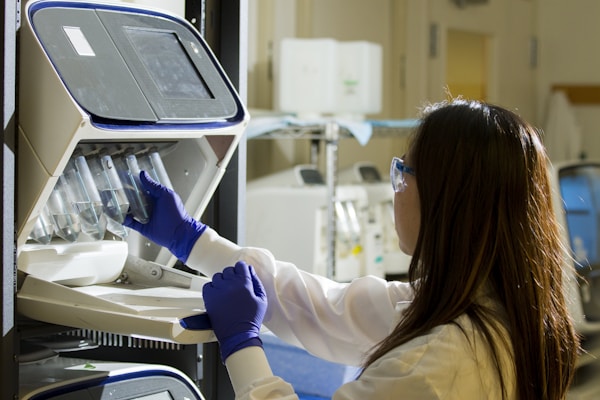Healthcare is an industry that is ripe for change and improvement. One area that has great potential for change is the use of artificial intelligence (AI). AI has the potential to help healthcare professionals make better decisions, provide better care, and improve outcomes for patients. There are many ways AI can be used in healthcare. For example, AI can be used to help diagnose diseases, develop treatment plans, and predict patient outcomes. AI can also be used to improve the efficiency of healthcare operations and reduce costs. Learn more about the best uses for AI in this field.
Improved Medical Technology

Medical technology is the application of medical science in the diagnosis, treatment, and prevention of disease. It encompasses a wide range of devices and equipment used in healthcare, from surgical instruments to diagnostic imaging systems. In recent years, there has been a growing trend towards the use of artificial intelligence (AI) in healthcare, with many experts predicting that AI will soon play a major role in the provision of medical care. There are several reasons for this trend. Firstly, AI has proven to be an extremely effective tool for diagnosing diseases. This is due to the fact that AI can process large amounts of data much more quickly than humans can, allowing it to identify patterns and correlations that may not be visible to human eyes. AI can also be used to help doctors plan treatments for patients. An algorithm has been shown to be able to reduce the number of hospital deaths by up to 40 percent by helping doctors choose the most appropriate treatments for their patients. This is because AI can analyze vast amounts of patient data in order to identify trends and patterns which may not be obvious to human beings. Finally, AI can also be used to help nurses and other healthcare workers manage patient care effectively.
Personalized Medicine
AI can be used to analyze large amounts of data in order to identify patterns and trends that may not be visible to humans. This information can then be used to develop predictive models that can help healthcare providers anticipate patients’ needs and provide them with customized treatment plans. AI can also be used to assist healthcare providers in making decisions about which treatments are most likely to be successful for individual patients. By using AI, healthcare providers can ensure that each patient receives the most appropriate care possible.
Managing Resources More Effectively

Artificial intelligence has the potential to help hospitals manage their resources more effectively by automating tasks that are currently done manually. For example, AI can be used to predict patient needs and allocate resources accordingly. It can also help identify patterns in data that could lead to better outcomes for patients. Additionally, AI can be used to improve communication between healthcare providers and patients. By reducing the amount of time spent on administrative tasks, hospitals can focus on providing quality care to their patients.
Improved Clinical Decision-Making
Lastly, AI has the ability to transform how clinicians make decisions. It can help identify patterns and correlations that may not be evident to humans. This information can then be used to improve care and treatment plans. By automating tasks such as data entry, clinicians can spend more time interacting with patients and developing individualized care plans. Additionally, AI can be used to monitor patient health and flag potential problems before they become serious.
Overall, the use of AI in healthcare has the potential to improve patient care and make the healthcare system more efficient. While there are still some challenges that need to be addressed, this technology is constantly making improvements in the healthcare industry.


